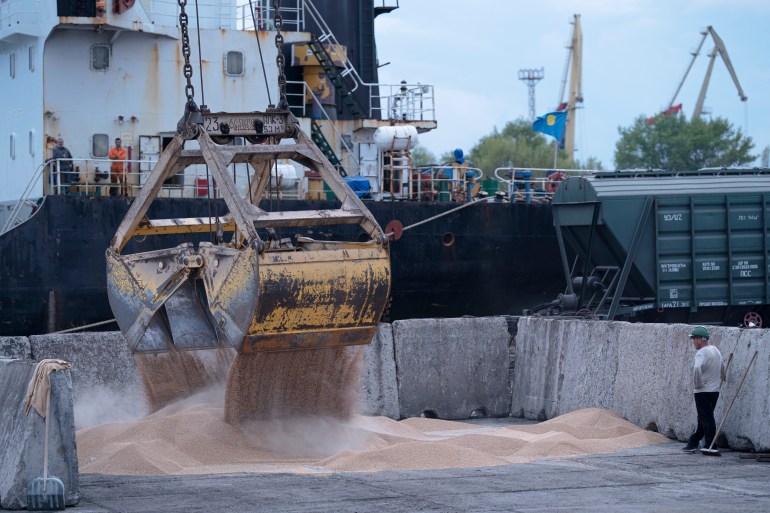Poland, Slovakia and Hungary imposed bans after an influx of Ukrainian grain led to local farmers’ protests.
The magazine on Monday quoted Ukrainian Trade Representative Taras Kachka as saying that Kyiv could also impose reciprocal measures on Poland if Warsaw did not drop its additional steps.
“We would be forced to retaliate on the additional products and would prohibit the import of fruit and vegetables from Poland,” he said.
In May, the European Union restricted Ukrainian grain to allow Poland, Bulgaria, Hungary, Romania and Slovakia to ban the domestic sales of Ukrainian wheat, maize, rapeseed and sunflower seeds while permitting transit of such cargoes for export elsewhere.
While the restriction expired last week, Warsaw, Bratislava and Budapest announced their bans on Ukrainian grain and said they were acting in the interests of their economies and that the move was intended to protect their farmers.
The three countries have complained that a glut of Ukrainian grain threatens their domestic markets.
Kachka said the bans are “ridiculous”.

“I think that Hungary here is making a political statement that it wants to block trade with Ukraine and as well disregard Brussels completely. And that’s why I think that this is a very bold movement against both of us from Budapest,” he said.
The EU allowed its ban to expire on Friday after Ukraine said it would take measures to tighten control of exports to neighbouring countries.
Kachka said Kyiv was ready to “take on the responsibility to ensure that export from Ukraine is not creating any tsunami in neighbouring countries” and would impose a system of “real-time” export licences for grains.
But the Ukrainian official also pointed out that the decision to enforce their bans outside of backing from the EU has raised “the biggest systemic concern” if partners cannot trust that Brussels speaks for the bloc.
According to Politico, Kyiv also plans to sue the countries at the World Trade Organization, not through its trade accord with the EU.
“I think that all the world should see how member states in the EU behave towards trade partners and their own union, because it can influence other states as well”, he added.
